Development of Conservation-Based Seaweed Cultivation to Support Community Ecology and Economy
Media Contacts
-
Adia Puja Pradana
Communications Specialist Ocean Program YKAN
Yayasan Konservasi Alam Nusantara
Email: adia.pradana@ykan.or.id
Indonesia is the second largest seaweed producer in the world after China. One of the largest seaweed producers in Indonesia comes from East Nusa Tenggara (NTT) Province. However, many seaweed cultivation practices can damage the environment and threaten the sustainability of coastal habitats. Cultivation practices that are not environmentally friendly can also have an impact on reducing economic benefits for society.
Environmentally friendly and sustainable seaweed cultivation was the main topic in the Thought Leadership Forum (TLF) discussion held by Yayasan Konseravasi Alam Nusantara (YKAN), with the theme "Development of Conservation-Based Seaweed Cultivation to Support Community Ecology and Economy" in Jakarta, Wednesday, February 28, 2024.
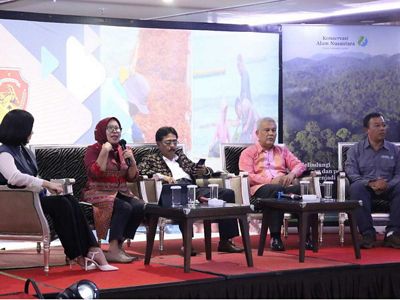
"These challenges can be overcome by increasing farmers' knowledge with technical guidance, integrating seaweed cultivation programs into village plans, developing jointly managed nurseries, creating information sources for seaweed farmers that are easily accessible, and collaborating with financial institutions to provide access to capital," he said.
Efforts to build sustainable grass cultivation
To overcome the challenges of seaweed cultivation in NTT, YKAN developed a sustainable seaweed cultivation model in Oelolot Village and Mbueain Village, Rote Ndao Regency. Community groups in the two villages are invited to apply best practices (Best Management Practices) in every stage of cultivation to marketing. This stage starts with managing the nursery, selecting superior seaweed seeds, choosing an environmentally friendly cultivation location, making seaweed dryers that comply with Indonesian National Standards (SNI), and marketing seaweed products to buyers who care about the environment. Another thing is integrating seaweed cultivation into development planning in the village so that activities can continue even after the program has finished.
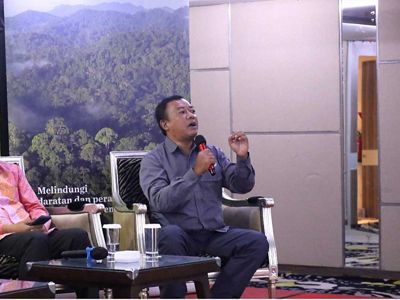
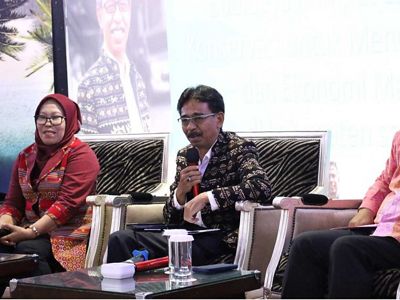
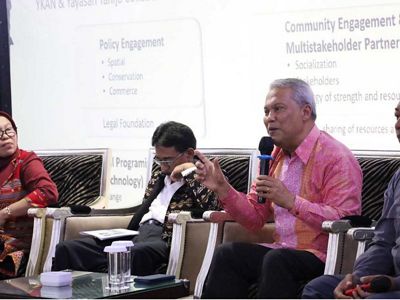
The importance of interagency partnerships
A comprehensive and structured partnership is critical for successful sustainable coastal resource management.
"In facing the challenges of sustainable management of natural resources, we cannot walk alone. Through partnerships between government, society, the private sector, and non-governmental organizations, such as YKAN, many concrete actions can be implemented to transform seaweed cultivation in NTT. "We hope that the positive impact that has been achieved can inspire more other seaweed industry players to participate directly in preserving nature and improving the welfare of society," said YKAN Executive Director Herlina Hartanto.
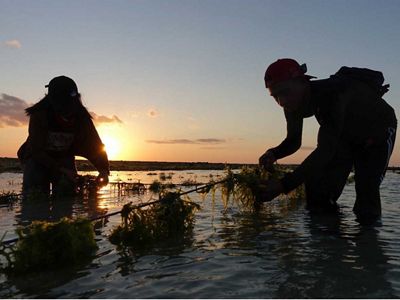
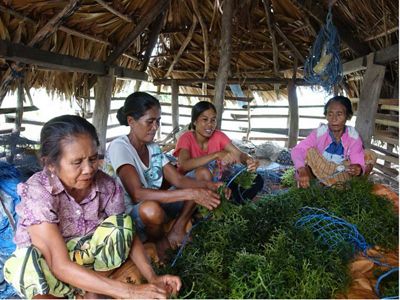
The Executive Director of the Tahija Foundation, Trihadi Saptoadi, agreed. "Since 2017, the Tahija Foundation has supported environmentally friendly, responsible, and sustainable seaweed cultivation and implemented local wisdom in marine use in NTT—our commitment to preserving nature. "Hopefully, with this discussion, collaboration between institutions can be strengthened," he hoped.
Yayasan Konservasi Alam Nusantara (YKAN) is a scientific-based non-profit organization that has been present in Indonesia since 2014. With the mission of protecting lands and waters as life support systems, we provide innovative solutions to realize the harmony of nature and humans through effective natural resource management, prioritizing a non-confrontational approach, and building a network of partnerships with all stakeholders for a sustainable Indonesia. For more information, visit ykan.or.id.


